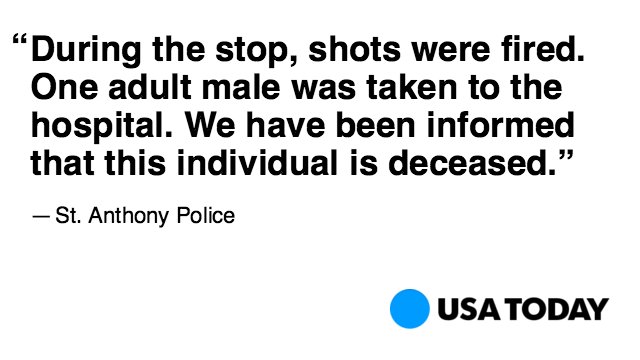one
Roger Fisher’s idea for making the decision to use nuclear weapons less abstract (from March 1981 @BulletinAtomic): pic.twitter.com/h7arl36sKE
— Stephen Schwartz (@AtomicAnalyst) December 2, 2015
Which reminds me of a story Penn Jillette used to tell. He and Teller were scheduled to appear on TV (maybe Letterman?), and so they prepared a new twist on a classic trick: You take a volunteer’s watch, put it in a bag, smash it, dump out the tattered remains, do some patter, and then make the watch reappear whole and ticking. In their version for Letterman (or whoever), they were going to take the host’s watch, smash it, then wheel out a big aquarium, and sprinkle the parts in the water, where they’d dissolve and the fish would eat them. The host would freely select one of the fish, Teller would scoop it out with a net, they’d gut and and ta-da!, there would be the whole, ticking watch in the fish’s guts!
But the network standards folks wouldn’t let them do that trick; it’d be too brutal to have an animal killed on screen. So Penn and Teller re-jiggered the trick: Instead of an aquarium full of live fish, they’d wheel out a fishmonger’s ice table with six dead fish on it. They’d take the host’s watch, smash it, sprinkle the bits in the ice, the bits would dissolve, the host would freely select a dead fish, and Teller’d fillet it to reveal the watch. Standards loved it, the host loved it, and that’s what went on live TV.
The point of the story—which is the sort of thing that belongs in an atheist’s Bible—is that  everyone was more comfortable with six fish dying instead of one, provided they didn’t have to watch. Perhaps this is why, if we are to have a death penalty, we should televise it. Perhaps viewing should be mandatory. Perhaps the president should be forced to kill one patriot before he or she kills 10,000 abstract men, women, and children.
everyone was more comfortable with six fish dying instead of one, provided they didn’t have to watch. Perhaps this is why, if we are to have a death penalty, we should televise it. Perhaps viewing should be mandatory. Perhaps the president should be forced to kill one patriot before he or she kills 10,000 abstract men, women, and children.
two
Consider The Demon Core and the sacrifices researchers make (occasionally heroic, but almost always mundane, and very often totally unforeseeable). I’m mostly putting this here because I’d first heard about this when I was a kid, and realized that many folks hadn’t–and further, that most folks don’t realize what a duct-tape-and-butterknives affair science really is. We imagine clean labs and specialized gear, but in real life it’s a lot of tupperware and dirty countertops. A few folks are celebrated for the “Eureka!”s, and even fewer die terrible (but instructive) deaths. The vast majority toil steadfastly day after day to further human progress one negative result at a time—so that we can go onto to totally disregard their hard-won findings because an actor or know-nothing shouted something demonstrably false at the top of their lungs just long enough to fool our just-half-a-step-from-monkey brains.
three
I hasten to add that, having protested the continuing operation of a damaged Fermi II back in the 1990s and edited a textbook about Chernobyl, I am now nonetheless firmly pro-nuclear energy. As a species, we need a lot of electricity, and we’re gonna need even more to dig ourselves out of the slow climate avalanche that’s going to kill us. The way we currently generate bulk electricity kills tens of thousands of people annually (for example, air pollution from burning coal kills more than 10,000 people each year just in the US)—and that’s when it’s working as intended. Even taking into account the inevitability of the occasional Fukushima or Chernobyl, we’re still better off with the Demon Core than the Devil We Know.







